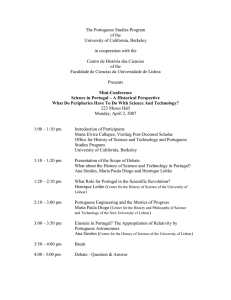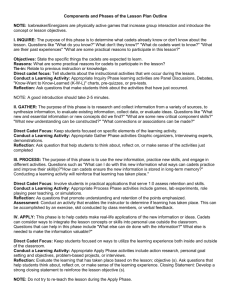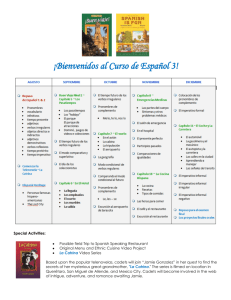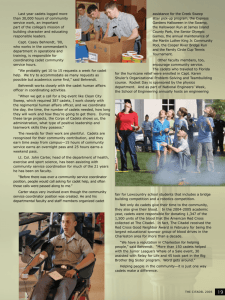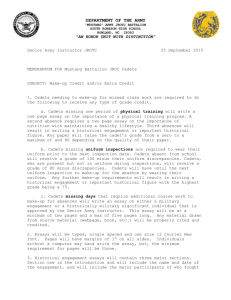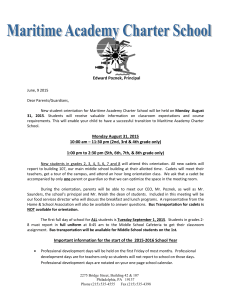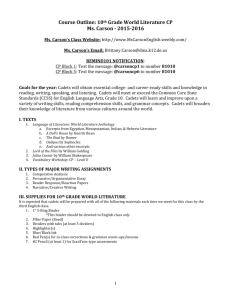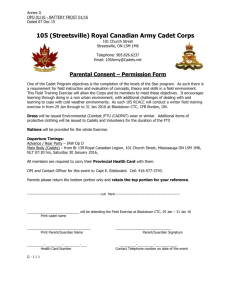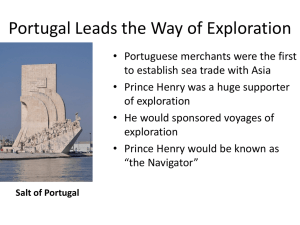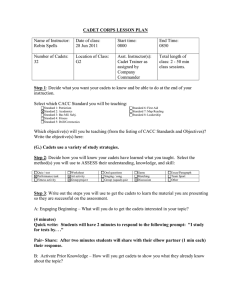Harrison Fletcher The US Army Cadet Command`s Culture
advertisement
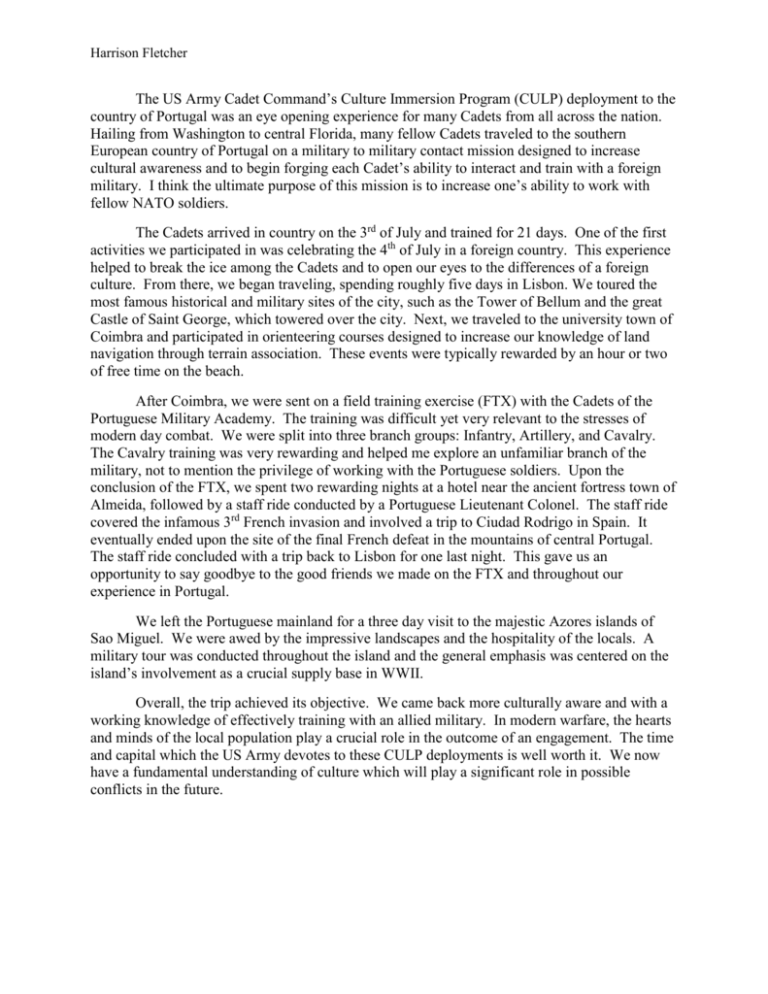
Harrison Fletcher The US Army Cadet Command’s Culture Immersion Program (CULP) deployment to the country of Portugal was an eye opening experience for many Cadets from all across the nation. Hailing from Washington to central Florida, many fellow Cadets traveled to the southern European country of Portugal on a military to military contact mission designed to increase cultural awareness and to begin forging each Cadet’s ability to interact and train with a foreign military. I think the ultimate purpose of this mission is to increase one’s ability to work with fellow NATO soldiers. The Cadets arrived in country on the 3rd of July and trained for 21 days. One of the first activities we participated in was celebrating the 4th of July in a foreign country. This experience helped to break the ice among the Cadets and to open our eyes to the differences of a foreign culture. From there, we began traveling, spending roughly five days in Lisbon. We toured the most famous historical and military sites of the city, such as the Tower of Bellum and the great Castle of Saint George, which towered over the city. Next, we traveled to the university town of Coimbra and participated in orienteering courses designed to increase our knowledge of land navigation through terrain association. These events were typically rewarded by an hour or two of free time on the beach. After Coimbra, we were sent on a field training exercise (FTX) with the Cadets of the Portuguese Military Academy. The training was difficult yet very relevant to the stresses of modern day combat. We were split into three branch groups: Infantry, Artillery, and Cavalry. The Cavalry training was very rewarding and helped me explore an unfamiliar branch of the military, not to mention the privilege of working with the Portuguese soldiers. Upon the conclusion of the FTX, we spent two rewarding nights at a hotel near the ancient fortress town of Almeida, followed by a staff ride conducted by a Portuguese Lieutenant Colonel. The staff ride covered the infamous 3rd French invasion and involved a trip to Ciudad Rodrigo in Spain. It eventually ended upon the site of the final French defeat in the mountains of central Portugal. The staff ride concluded with a trip back to Lisbon for one last night. This gave us an opportunity to say goodbye to the good friends we made on the FTX and throughout our experience in Portugal. We left the Portuguese mainland for a three day visit to the majestic Azores islands of Sao Miguel. We were awed by the impressive landscapes and the hospitality of the locals. A military tour was conducted throughout the island and the general emphasis was centered on the island’s involvement as a crucial supply base in WWII. Overall, the trip achieved its objective. We came back more culturally aware and with a working knowledge of effectively training with an allied military. In modern warfare, the hearts and minds of the local population play a crucial role in the outcome of an engagement. The time and capital which the US Army devotes to these CULP deployments is well worth it. We now have a fundamental understanding of culture which will play a significant role in possible conflicts in the future.

